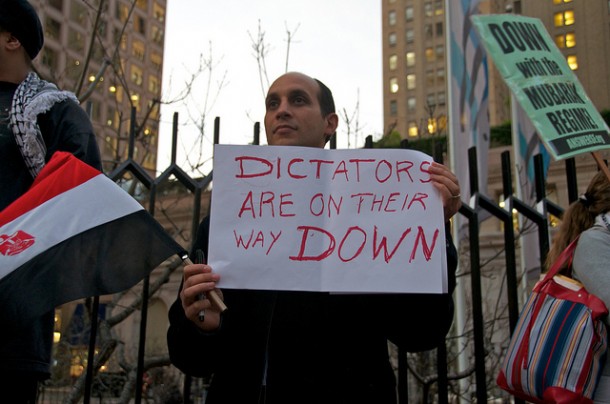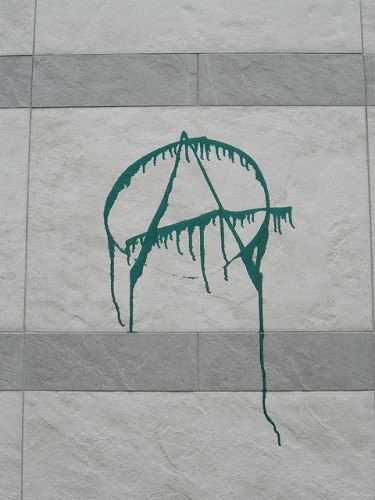The fall of dictatorships worldwide is usually met with celebration, and for good reason; totalitarian regimes, beyond defying the Western ideals of freedom of speech and democracy as a fundamental right, are known for their brutal and inhumane treatment of their citizens. Take the Arab Spring as an example: Westerners applauded Middle Eastern demands for freedom and the role of social media in the risings – all this without considering the resulting instability and uncertainty, assuming that liberal democracies worldwide will be the “endpoint of political evolution” for humans.
In reality, international political systems are much more complex. Not every country can be expected to uphold a democratic system; in fact, sometimes the instability created by a shift from autocracy to democracy can be worse than the dictatorship itself.
A clear example of this is the chaos following the fall of Middle Eastern dictatorships – the regimes of Saddam Hussein, Gaddafi, and Mubarak among others. In 2003, when tensions regarding G.W. Bush’s involvement in Iraq ran high, it was estimated that 200,000 people would die as a consequence of the U.S. invasion. Although this number appeared high at the time, it has abundantly been surpassed in the decade following the war.
Perhaps even more importantly, the power vacuum created by Saddam’s fall and the resentment toward Western involvement gave way to the rise of the militant Islamic State – now an international security threat creating a vicious cycle of Islamophobia in the West and further radicalisation in the Middle East. As stated by Christiane Hoffmann:
The alternative to dictatorship isn’t necessarily democracy – all too often, it is anarchy. In the coming years, global politics will not be defined by the polarity between democratic and autocratic states as much as it will by the contrast between functioning and non-functioning ones.
Today’s Middle East is not the first instance of instability enabling extremism to take over. The French Revolution was followed by a brutal reign of terror; the weak Russian Provisional Government, assembled after the fall of tsarism, led to the rise of a communist state. If such are the negative outcomes of periods of political uncertainty, are stable dictatorships simply the “lesser evil”?
But can we truly turn a blind eye to the appalling human rights abuses of most dictators? There were at least 460 cases of torture under Mubarak between 1993 and 2008; Saddam’s terror campaigns killed up to 100,000 Kurds and displaced 900,000 Iraqis. Surely, any alternative is preferable to such horrors. Despite this, “dictatorships [keep] the status quo manageable” and prevent the rise of extremist terrorist groups. Mubarak helped maintain peace in Israel; Saleh fought Al-Qaeda alongside the West; Gaddafi made Libya one of Africa’s most strongest nations economically (although, Lybia’s human rights track record and social security system set it apart from other Middle Eastern regimes and pose the question of whether he was truly a ‘dictator’).
Something to consider is that the current instability in the Middle East may be caused not by the lack of a totalitarian leader but by irresponsible Western intervention in the area. If external governments decide to destroy autocracies for their own economic and sociopolitical interests – as seen in the 2003 Iraq War – they should also commit to maintaining long-term stability; after all, overthrowing a regime from the outside is easier than setting up a new one in its place. And so the problem is not the anarchy brought about by the fall of totalitarianism itself, but simply the short-sightedness of the U.S. and other Western powers. A revolution should be carried out by the oppressed themselves, not by foreign interventionists. According to Lina Khatib:
While this instability is making the West – particularly the United States – uncomfortable, it is a direct result of the West’s own stance towards dictatorships in the region prior to and during the Arab Spring. The West’s shortsightedness in handling the Middle East throughout its modern history has directly contributed to its current devastation.
A contrasting theory is that the phrase “functional dictatorship” in and of itself is a paradox. While autocracies may maintain a semblance of stability through oppression and brutality, this is but an “optical illusion”. If the previously mentioned Middle Eastern regimes had truly been stable, they wouldn’t have collapsed so easily. “Functioning democracies are, in the long term, usually more stable than dictatorships. Dictatorships only appear stable if they are highly repressive” (Mathieu von Rohr). Because authoritarian regimes are fundamentally weak, such force and repression is necessary to uphold them.
While dictatorships may disguise internal conflicts for decades, these will still develop and tensions will escalate beneath the surface. For example – in Saleh’s Yemen tensions between Sunni muslims and Zaidi Houthis, as well as popular anger toward Western drone attacks, went ignored and worsened while his government maintained a mask of total control. The implosions of violence and anarchy following the fall of authoritarian governments are often caused by these regimes themselves. If that is not the case, then why is most of the world’s instability today focused around areas which have been under dictatorial rules for decades? As Khatib explains:
The current misery in the Middle East still does not mean that the region was better off under dictatorships. The aftermath of dictatorships is always messy, and democratic transition is never linear. Those with nostalgia for the days of Arab strongmen should remember that autocratic regimes plant the seed of future unrest and therefore only offer false, temporary security – even if “temporary” takes a few decades to pass.
And so, the idea of autocracies – regardless of their human rights records – being the “lesser evil” in that they maintain stability is misguided. The instability and extremism characterising a dictatorship’s collapse is often the hidden product of the autocratic system itself.





